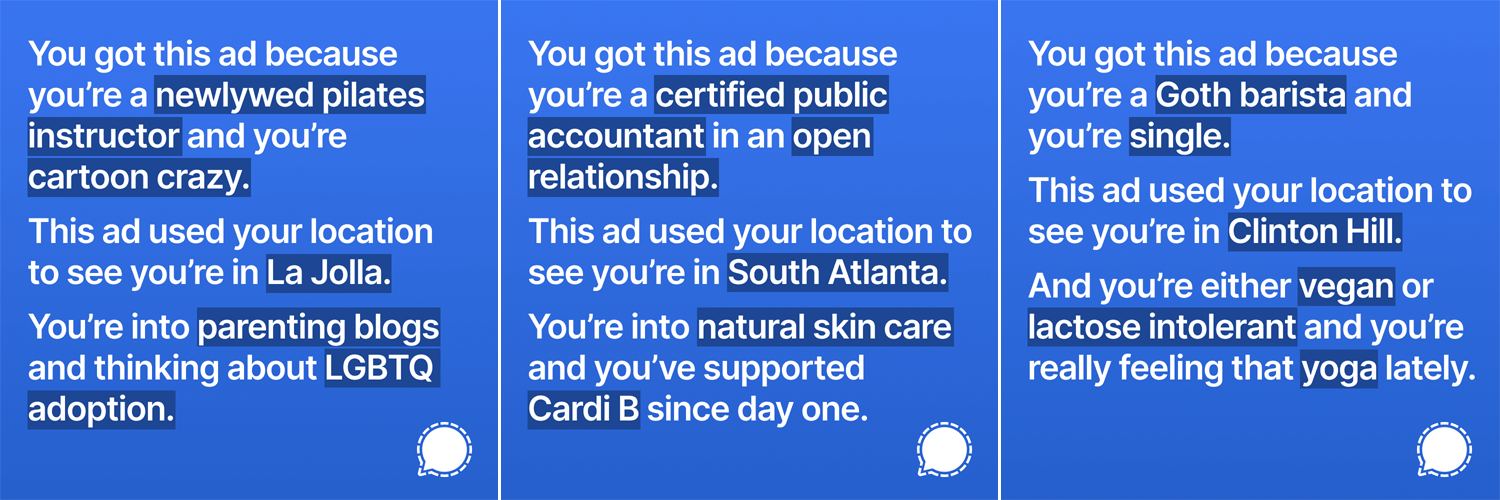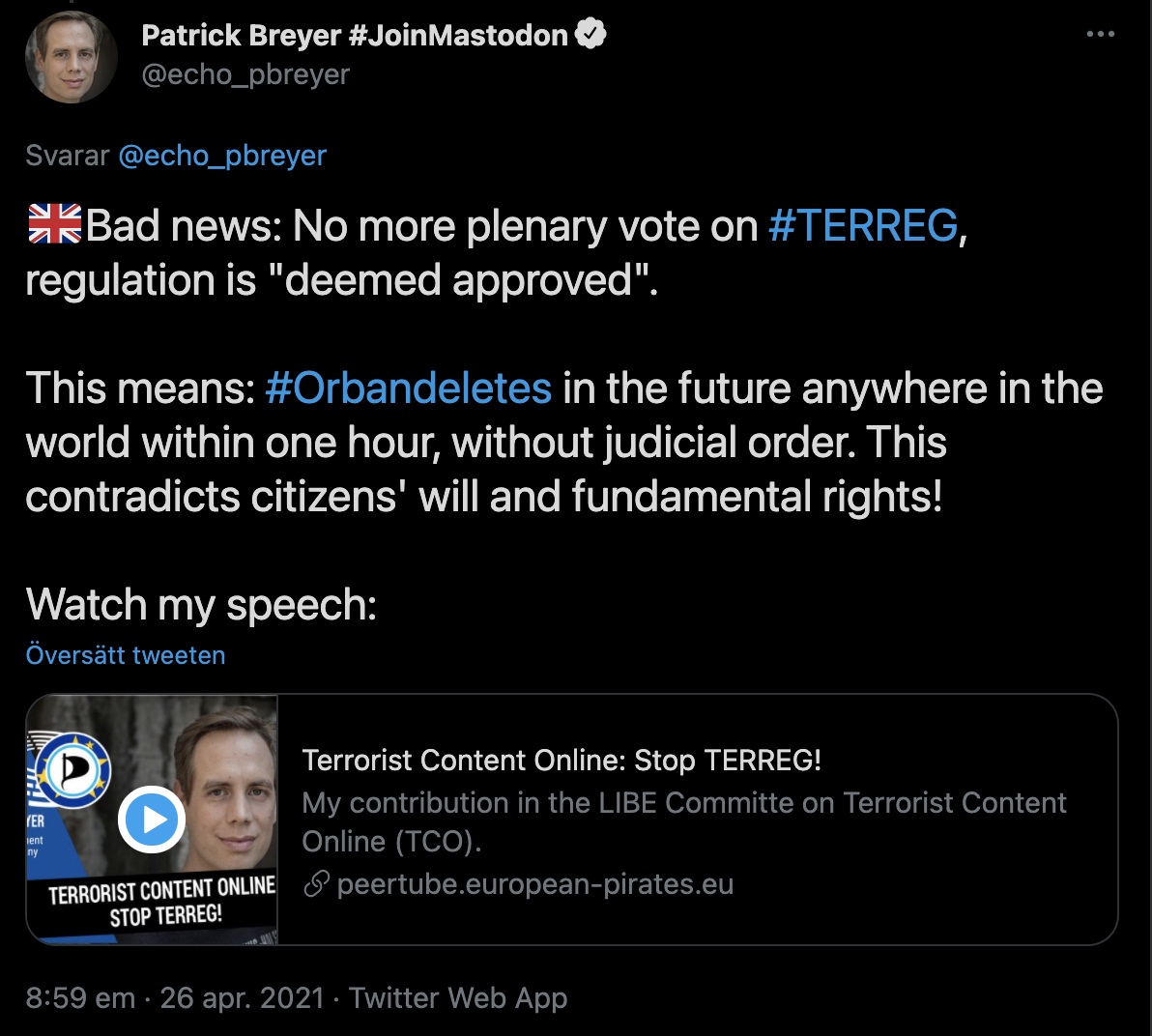Förra året trädde the European Electronic Communications Code (EECC) i kraft. Dess syfte var att garantera internetanvändares rätt till privatliv, vilket den också gjorde. I kombination med eHandels-direktivets förbud mot allmän, svepande övervakning gav den användarna det skydd som vi rimligen har rätt att kräva – om man tillämpar Europakonventionen om de mänskliga rättigheterna och vad denna har att säga om rätten till privatliv på våra liv online.
Vad man inte tänkte på var att Google, Yahoo, Facebook med flera redan av-krypterar och skannar innehållet i e-post och meddelanden. Detta i jakt på barnporr och för att förhindra sexuella övergrepp på barn. Flaggade meddelanden granskas av den amerikanska privata organisationen National Center for Missing & Exploited Children (NCMEC) och lämnas i förkommande fall vidare till polisen.
Detta skulle inte längre vara möjligt med det starka skydd för användarnas privatliv som EECC stadgar.
Från NCMEC:s sida startades därför en kampanj – uppbackad av kändisar från film- och nöjesvärlden – där man på ett högljutt sätt som i princip omöjliggjorde saklig diskussion krävde en återgång till den tidigare ordningen, där e-post och meddelanden avkrypteras och översänds till NCMEC.
Det är detta som nu är uppe i EU. Man gör ett undantag från EECC och eHandels-direktivet för att av-kryptering och granskning av meddelanden skall kunna fortsätta.
Beslutet är tvådelat. Dels handlar det om att man inför ett undantag i gällande lagstiftning, för att övervakningen skall kunna fortsätta. Dels handlar det om ett beslut om att göra denna övervakning möjlig även på sikt.
Det första beslutet gör det tillåtet för företag som tillhandahåller e-post och meddelandetjänster att av-kryptera och granska användarnas kommunikationer. Det andra beslutet gör det obligatoriskt.
Det första beslutet (undantaget) väntas i Europaparlamentets plenum i juni eller augusti. (Trilogförhandlingarna avslutades i slutet av förra månaden.) Och efter sommaren väntas EU-kommissionen lägga fram förslag till steg två, som alltså är tänkt att göra av-kryptering och granskning obligatorisk.
Vad är då problemet?
Till att böja med öppnar av-kryptering och innehållsgranskning för att denna verksamhet även kan komma att bedrivas i andra syften. I händerna på en auktoritär, korrumperad eller inkompetent regim är detta ett kraftfullt och farligt verktyg.
Vidare har studier i Schweiz visat att nio av tio flaggningar av den typ NCMEC vill ha är felaktiga. Detta kommer att få våldsamma konsekvenser för helt oskyldiga människor.
Den piratpartistiske ledamoten av Europaparlamentet, Patrick Breyer (DE) kommenterar:
»This unprecedented deal means all of our private e-mails and messages will be subjected to privatised real-time mass surveillance using error-prone incrimination machines inflicting devastating collateral damage on users, children and victims alike. Countless innocent citizens will come under false suspicion of having committed a crime, under-agers will see self-generated nudes (sexting) fall in wrong hands, abuse victims will loose safe channels for counselling. This agreement sets a terrible precedent and is a result of a campaign of disinformation and moral blackmailing. Unleashing such denunciation machines is ineffective, illegal and irresponsible. It’s using totalitarian methods in a democracy.«
Fler avvikande röster, ur en tidigare bloggpost:
»Europeiska datatillsynsmyndigheten (EDPS) anser att lagförslaget varken är nödvändigt eller proportionerligt. Det saknar laglig grund, tydliga regler och tillräckliga skyddsåtgärder.
EU-parlamentets utredningstjänst (EPRS) anser att en sådan här lag endast bör inriktas mot personer som är misstänkta för att ägna sig åt något brottsligt. Man pekar även på att förslaget strider mot dataskyddsförordningen, GDPR.
UNICEF menar att förbättrad integritet och dataskydd för barn är bättre än automatisk övervakning av deras kommunikation.«
Men nu är det hela i princip redan packat och klart. Nu gäller det att vara uppmärksam på om de nya reglerna missbrukas eller drabbas av ändamålsglidning.
Länkar:
• PP: Trilogkompromiss nådd om massövervakning av privat kommunikation »
• MEP Patrick Breyer (PP, DE): EU-deal on ChatControl – Indiscriminate analysis of all private communications contents becomes law »
• MEP Patrick Breyer (PP, DE): Dokument- och resurs-bank chatControl »
• MEP Patrick Breyer (PP, DE): Poll – 72% of citizens oppose EU plans to search all private messages for allegedly illegal material and report to the police »
• Babak Karimi: ”Jag misshandlades av maskerad polis i mitt eget sovrum” »
Våra tidigare poster om ChatControl, med länkar och resurser:
• EU: Nu skall alla dina elektroniska meddelanden granskas »
• EU öppnar för automatisk granskning och analys av alla dina meddelanden och all din e-post »
• EU allt närmare kontroll av innehållet i alla nätanvändares alla meddelanden »
• EU: En soppa av motstridiga förslag och beslut om övervakning »
• EU hotar rätten till privat korrespondens online »
• Chatcontrol får grönt ljus – alla meddelanden kan kontrolleras »

